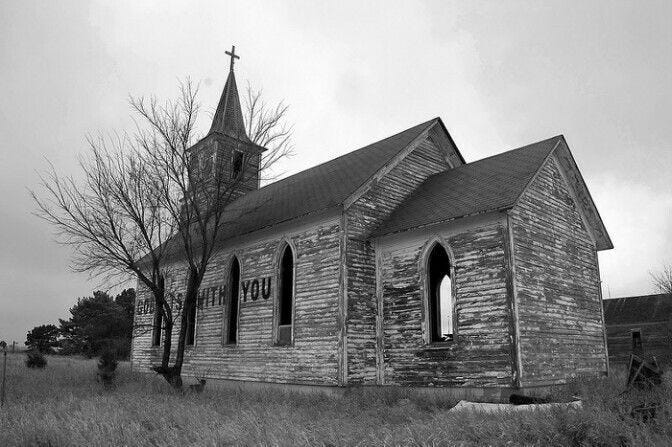I Asked ChatGPT: Why Some Call Me a Heretic (and Why I’m Not)
The word heretic has always had a certain melody to it — sharp, unresolved, a little dissonant. It hums in the background of anyone who’s ever dared to love God in a way the Church didn’t quite understand. I suppose that’s where I live most days: somewhere between the hymn and the feedback loop.
I’ve been called a heretic before. Sometimes as an insult. Sometimes as a compliment. Usually, it’s because I talk about faith as if it were a song instead of a system, a poem instead of a policy. That’s theopoetics — faith as the art of attending to what language can’t hold. It’s not that doctrine doesn’t matter. It’s that mystery matters more.
I write about sound — jazz, chant, traffic noise, protest songs — as sacred material. I think God is in the noise as much as in the silence. Maybe more so. If you can’t find God in the honking horns, the shouts for justice, the baby crying during the Eucharist, then maybe you’re not listening hard enough. That kind of theology doesn’t sit comfortably in the pews. It spills out into the streets.
I also write about whiteness, about the legacy of slavery and the way Christianity in America has often traded its soul for power. That, too, gets me called a heretic. But if the Gospel doesn’t unsettle our idols — racial, economic, or otherwise — then what good is it?
For me, the Eucharist isn’t a gatekeeping ritual; it’s a feast for everyone who hungers. The table is as wide as the world. The host is love itself. That’s what I mean by radical hospitality. It’s not permissive. It’s transformative. It’s Jesus breaking bread with the wrong people, again and again.
Faith, as I see it, is not about certainty. It’s about wonder. It’s about listening for God in the shifting key signatures of our lives, trusting that even dissonance belongs to the song. I borrow from process theology and theopoetics not because I want to rewrite the faith, but because I want to listen more deeply to it — to let it breathe, to let it sing.
So no, I don’t think I’m a heretic. I think I’m trying to be faithful — to the music, to the silence, to the people, to the God who keeps speaking in tongues we’ve yet to learn.
If that makes me a heretic, so be it. Every prophet sounds like noise until someone learns the tune.
Tripp Hudgins writes about sound, faith, and theopoetics — the music of belief and the noise of belief.
ChatGPT freaks me out…



I had a seminary professor who said that things pronounced as heretical throughout time have often become orthodox. From time to time I ponder that.
Hmmm. Hadn’t heard of theopoetics, but if you’re a heretic for many of these reasons, then I am too! Only a little less public. I appreciate your voice in our world!